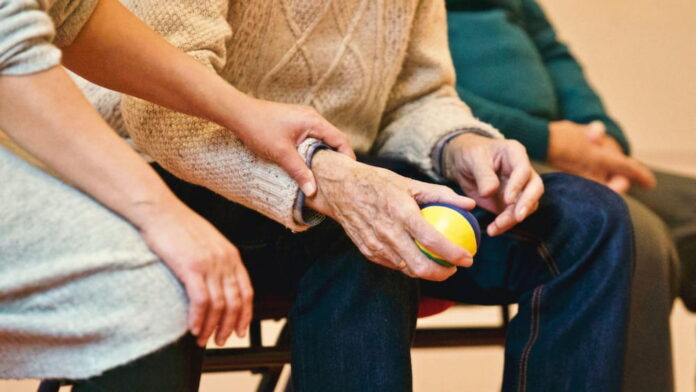Home care is specific care given to people who are aging in place, disabled, recovering from surgery, and chronically ill. Its main goal is to provide services to individuals who have special needs and require medical attention right in the comfort of their homes.
Research shows that patients heal faster at home than at any medical facility. Additionally, in-home care is usually less expensive than its other counterparts, such as hospitalization or assisted living.
In addition to healing benefits and cost-effective care, home care offers different services for every distinct need of each care recipient. These services include personal care, household chores, money management, and health care. Let’s talk more about these services here.
Non-Medical Care
This type of home care service goes by different names. For example, people call it “personal care and companionship,” “homemaker care,” “home health aide services,” “senior care,” “companion care,” or “assistive care.”
While many home care recipients and providers call it differently, this home care type, i.e., usually offered by many non-medical senior care franchises only does one specific thing: to accompany the care recipient—the caregiver services like how the family members will do.
In general, the service is associated with everyday activities, such as:
- Self-care assistance – such as using the toilet, bathing, or dressing
- Safety assistance – such as ambulation, fall prevention, wheelchair transfer (e.g., from wheelchair to bed or toilet bowl and vice versa)
- House chores assistance – such as planning or making meals, doing the laundry, light housekeeping
- Escort/companionship – such as escorting the recipients to pay bills, run errands, or hang out
- Round-the-clock supervision – especially for those who have Alzheimer’s disease or dementia
Most of the caregiver’s tasks are to provide personal care to the recipient. Therefore, the service must be ongoing based on the schedule in favor of the care recipient’s needs. Depending on their status, the service can be 24/7 and live-in care. It’s necessary, especially for Alzheimer’s disease or dementia patients who need round-the-clock supervision.
Further, non-medical care service doesn’t have to be prescribed by a doctor. However, in terms of medication, the caregiver should know what the recipient’s attending physician has advised. Also, the caregiver should be aware of the recipient’s health care provider and insurance in case they need immediate medical care.
Private Duty or Nursing Care
Nursing care often needs to stay 24/7 in the recipient’s house as it will provide care for those with specific medical needs. Hence, they’re called private duty nurses. They’re going to provide medical-related services, so they have to follow a doctor’s prescription.
Like non-medical care, this type of home care also has different names, including catastrophic care, ventilator care, or catastrophic care. As these names imply, the private nurse has to provide services for people suffering from various diseases.
It may include giving service to those who have traumatic brain injury (TBI), amyotrophic lateral sclerosis (ALS), stroke, spinal cord injury (SCI), multiple sclerosis (MS), and many more. These services may include the following:
- Administering medications
- Vital signs monitoring
- Catheter care
- Feeding tube care
- Ventilator care
- Tracheostomy care
- Ostomy/gastrostomy care
Everything mentioned above should be provided in a timely and extended period of time. That’s why most caregivers should give home-based skilled service, often hourly and long-term nursing care. Other caregivers, especially those who have their own families to take care of, can do shifting instead of doing in-home care, though.
Home Health Care
In contrast to nursing care, home health care provides short-term care primarily to prevent or recover from hospital stays, injuries, or illnesses. Sometimes, the doctor visits the patient themselves. This care offers the following services:
- Physical therapy
- Speech-language pathology
- Occupational therapy
- Home health aide services
- Short-term nursing services
- Medical social work
If the attending physician isn’t available, a medicare-certified home health caregiver can give the physician-directed service instead. However, unlike non-medical or nursing care, they aren’t going to stay in a recipient’s house for a long time. Hence, this care is commonly called visiting nurse services or intermittent skilled care.
The service given by specialized clinicians will mostly last for at least an hour, depending on what kind of consultation. The care will be on a short-term basis and will continue until the patient’s primary medical goal is achieved.
Does Insurance Cover Home Care Services?
In-home care services are typically free out of charity and community services. Some insurance coverages can also cover them, but not all. One sample exclusion is PPO meaning Preferred Provider Organization. It’s a health plan that contracts with medical providers who’ll provide services at reduced rates. However, these services are usually offered at a medical facility, not at home.
Final Thoughts
In choosing the best home care service, it’s best to undergo a professional consultation. Ask your patient and their attending physician about the medically best and safest arrangement for a home care service. There are many home care providers in almost every state nowadays, but not all provide excellent services. Hence, be sure to do your part in research to ensure the safety of your loved.
Read Also
- Why comprehensive health insurance with maternity is beneficial in the UAEWelcoming a child is a significant milestone in any family’s journey. As exciting as this chapter is, it also brings with it a fair share of responsibilities—especially when it comes to planning for healthcare costs. Health insurance is now mandatory in the UAE, but as with any type of insurance, the smallest requirement might not… Read more: Why comprehensive health insurance with maternity is beneficial in the UAE
- Modern Approaches to Adolescent Mental Health Treatment for Lasting RecoveryWith increasing numbers of teens experiencing emotional and behavioral health concerns, adolescent mental health treatment has become more essential than ever. Conditions such as anxiety, depression, trauma and mood instability are on the rise, and effective support must evolve with these growing needs. Today’s treatment models blend evidence-based therapy with flexible access and holistic care, giving… Read more: Modern Approaches to Adolescent Mental Health Treatment for Lasting Recovery
- How to Drive Growth Through Customer Centricity in HealthcareThe world of healthcare is changing in big ways. Consumers are now stepping up and taking charge of their health journeys. This change is happening now for important reasons. The U.S. health and wellness market is huge, projected to be over $6 trillion in 2025. This growth is fueled by rising out-of-pocket costs and more… Read more: How to Drive Growth Through Customer Centricity in Healthcare
- Why Biotech Companies Choose Contract Manufacturing Organizations for Scalable GrowthBiotech and pharmaceutical companies are under constant pressure to innovate, scale fast, and stay compliant. Doing everything in-house can slow them down. That’s why many are turning to a contract manufacturing organization to handle specialized production needs—especially in genetic and molecular biology fields. Reliable CMOs offer speed, precision, and regulatory knowledge. For early-stage firms, this… Read more: Why Biotech Companies Choose Contract Manufacturing Organizations for Scalable Growth
- Maximizing Digital Reach for Podiatry Clinics in Local HealthcareMaximizing Digital Reach for Podiatry Clinics in Local Healthcare As the healthcare industry evolves, mobile marketing becomes indispensable for practitioners. Podiatry clinics, focusing on foot and ankle care, must adapt to digital strategies to engage patients effectively. Implementing tailored SEO practices is crucial for these clinics to thrive in an increasingly competitive market. Digital marketing… Read more: Maximizing Digital Reach for Podiatry Clinics in Local Healthcare






